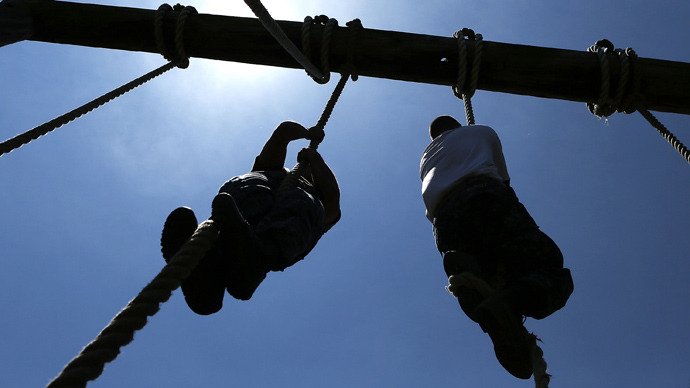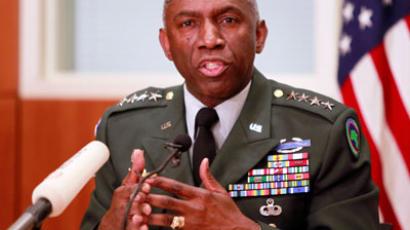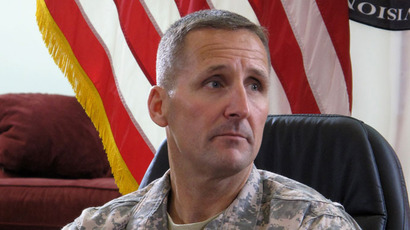Ongoing military rape epidemic: 85k vets treated for sex abuse in 2012

More than 85,000 US veterans received medical treatment for sex abuse trauma in 2012, while only 4,000 applied for disability benefits. The numbers portray the shocking long-term consequences of sex abuse, days after the Pentagon acknowledged the problem.
The data shows the long-term financial and emotional costs of sexual assault in the military for both men and women. Of the 85,000 veterans suffering from what the Department of Veterans Affairs calls “military sexual trauma”, 60 percent were female and 40 percent were male. In comparison, only 4,000 American veterans sought disability benefits in 2012, which is 20 times less than those suffering from sex abuse trauma, the Associated Press reports.
Ruth Moore, a veteran from Milbridge, Maine, first sought treatment from a counseling center 16 years after she was raped twice while serving the Navy. She has suffered from post-traumatic stress disorder linked to the assaults, and has been unable to work.
“We can’t cure me, but we can work on stability in my life and work on issues as they arrive,” she told AP.
Earlier this month, the Pentagon acknowledged that “sexual assault is a persistent problem” among service members, and that about 26,000 military service members said they were sexually assaulted in 2012, ninety percent of which chose not to file a report.
It is undeniable that victims of sexual assault often face emotional consequences. But Dr. Margret Bell, a member of the Department of Veterans Affairs’ military sexual trauma team, told AP that the US government should also be concerned about the costs of treating so many victims. Veterans who claim to have suffered sexual abuse in the military have access to free heath care.
“It really is the case that a veteran can simply walk through the door, say they’ve had this experience, and we will get them hooked up with care,” Bell said. “There’s no documentation required. They don’t need to have reported it at the time.”
Receiving treatment for sexual assault is easier than doing so for disabilities: veterans must be medically diagnosed with PTSD or a similar problem, submit proof of how they acquired their disability, and have an examiner confirm their condition before the disabled can receive health care.
According to the Department of Veterans Affairs, one in five women and one in 100 men screen positive for military sexual trauma – but few seek treatment. This indicates that many more than 85,000 veterans have been victims of military sexual activity against their will. There are about 22 million veterans in the US.
The numbers demonstrate the need for action to reduce the number of sexual assaults that occur in the military each year, both for victims’ health and the government’s cost. Moore estimates that her treatment will exceed $500,000 over the course of her lifetime -- money that the government could potentially save by doing more to address sexual assault in the military.














